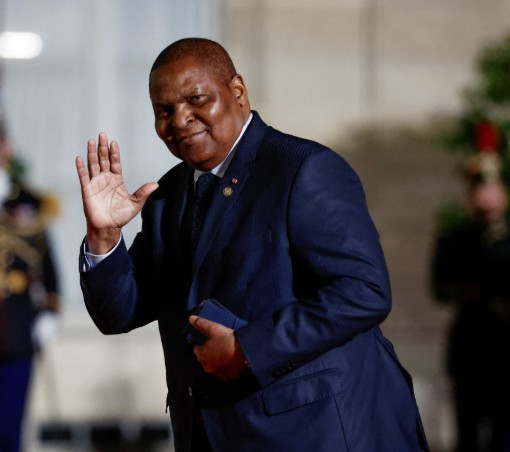President Faustin-Archange Touadéra Eyes Third Term Following Referendum Victory

Controversial Constitutional Changes Pave Way for Extended Presidential Rule
President Faustin-Archange Touadéra has officially declared his intention to run for a third term, setting the stage for a high-stakes December election in one of Africa’s most politically fragile nations. The announcement follows the passage of a highly contested constitutional referendum that removed presidential term limits and extended each term from five to seven years.
Touadéra, who first came to power in 2016, framed his decision as a response to “the will of the people” and a continuation of his mission to bring stability and growth to the Central African Republic (CAR). Supporters gathered in Bangui to celebrate the announcement, while critics described the move as a power grab aimed at consolidating long-term control.
“We are building a foundation for a more stable and sovereign Central African Republic,” Touadéra told supporters during a televised address. “Our people have spoken clearly through the ballot.”
Controversy Over Constitutional Reform
The constitutional referendum, held in July 2023, was boycotted by most opposition parties and condemned by international observers, including the European Union and several human rights organizations. Critics argued that the process lacked transparency and disenfranchised large swaths of the population, particularly those displaced by conflict.
Nonetheless, official figures claimed that over 95% of voters approved the new constitution, despite a turnout of less than 60%. The amendments give the president sweeping new powers, including control over the judiciary, and eliminate presidential term limits allowing Touadéra to run indefinitely.
Security and Russian Involvement
Touadéra’s government has relied heavily on Russian paramilitary support, particularly the Wagner Group, to maintain control over key regions. In return, Moscow has reportedly secured concessions in the mining sector, especially gold and diamonds. The growing Russian presence has drawn scrutiny from the U.S. and other Western allies, who fear geopolitical entrenchment in the resource-rich country.
The UN peacekeeping mission (MINUSCA) remains active but has had limited success in curbing violence between government forces and rebel groups. The country continues to face frequent clashes, humanitarian crises, and mass displacement.
Uncertain Path to December Elections
While President Touadéra’s announcement signals the start of an election campaign, the Electoral Commission has not yet confirmed a date for the national polls. Questions remain about voter registration, security, and whether opposition candidates will be allowed to run freely.
Civil society organizations have urged transparency and international oversight, warning that without it, the election could further entrench authoritarian rule and undermine fragile peace agreements.
“There can be no credible election without the rule of law, independent media, and an empowered opposition,” said a spokesperson for the Central African Human Rights League.
Historical Context
The Central African Republic has endured decades of coups, civil war, and political instability since gaining independence from France in 1960. Touadéra was initially viewed as a reformist figure when he took office in 2016, but critics now accuse him of drifting toward authoritarianism. His pursuit of a third term mirrors similar political trends in other parts of Africa, where constitutional changes have enabled long-serving leaders to extend their rule such as in Chad, Congo-Brazzaville, and Uganda.

spam filtering services https://otvetnow.ru home security san diego